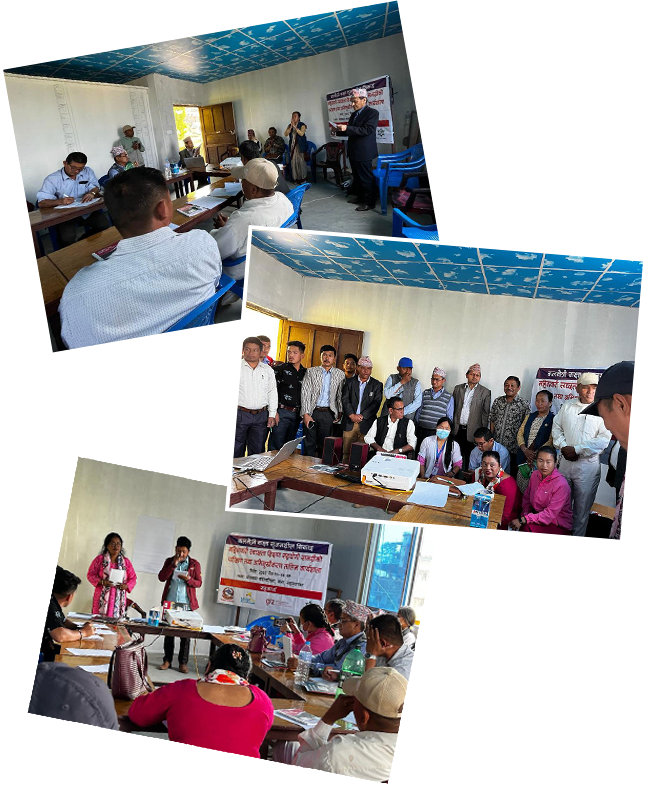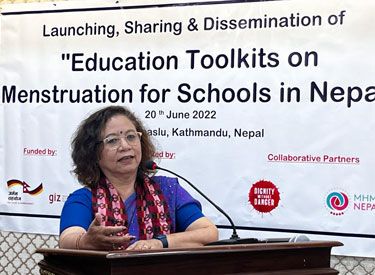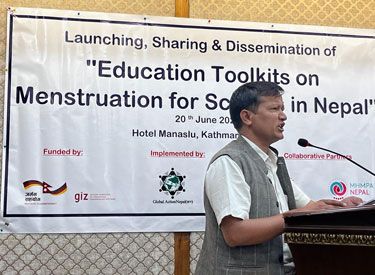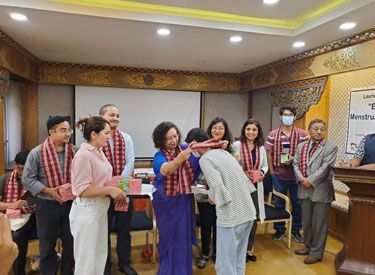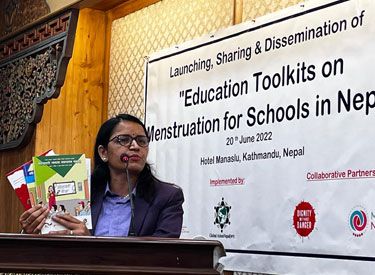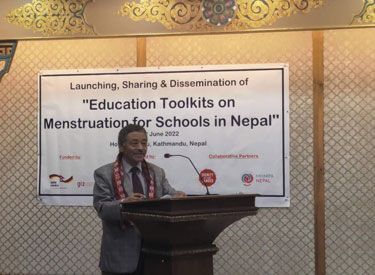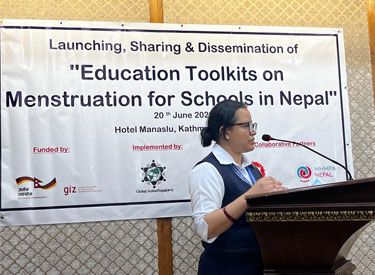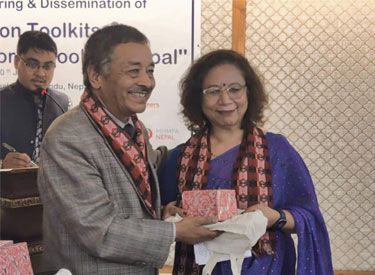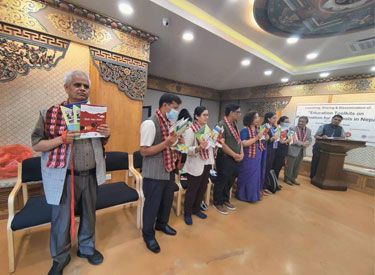Research
- Home
- / Research
Piloting Mensturation Education Toolkits
In Nepal, women and girls do not have the basic right to a dignified menstrual cycle. This means that they are subjected to inhumane and degrading treatment, including abuse and violence. The exclusionary practices, stigma and prohibitions surrounding menstruation, inherent in traditional beliefs and cultural heritage practices, have a negative impact on school attendance and employment, preventing women and girls from fully participating in economic and social life. This has become an emerging problem in Nepal. Due to the lack of informed plans, policies and programs, women and girls are not only deprived of human dignity during menstruation, but also social stigma and taboo on their health and education.
Objectives
To look at the issue of menstruation from different perspectives (including health, sanitation, human rights, social aspects, etc.)
Proposing a collaborative approach to “menstrual education” with many MHMPA artists
Offering inclusive and interdisciplinary teaching and learning methods (including books, arts, stories, etc.) about menstruation, allowing to address the individual needs and preferences of teachers and students
To strengthen MHMPA – as a well-known alliance of actors and knowledge centre on menstruation.
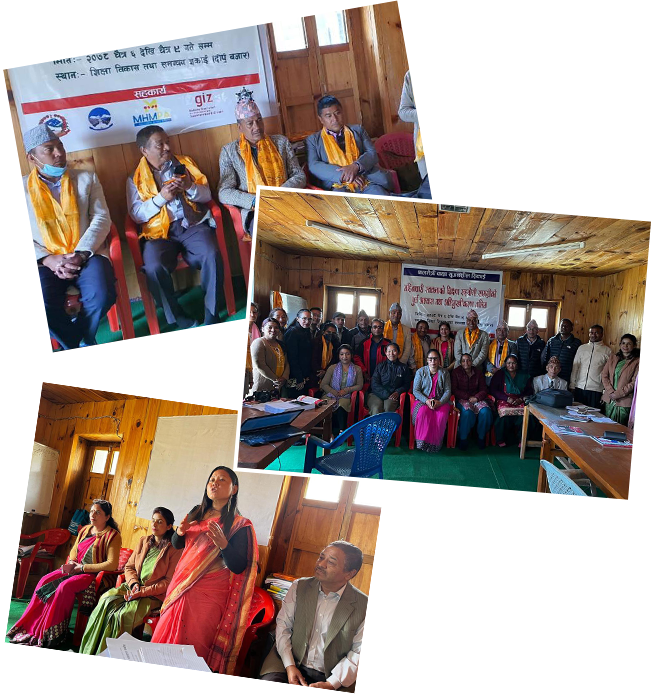
Implementation
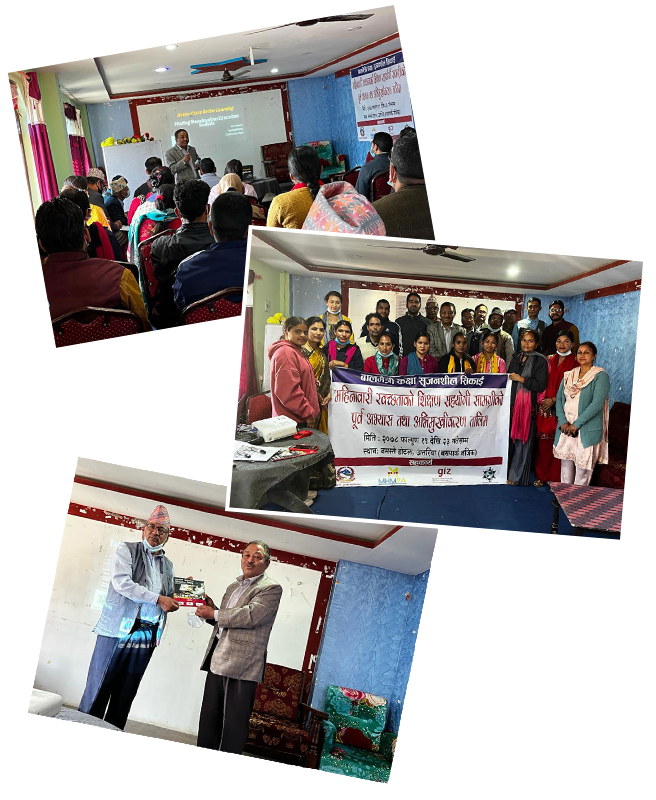
Global Action Nepal in collaboration with Ministry of Health, GiZ, MHMPA (the Alliance of Menstrual Health and Hygiene Management Partners (MHMPA) was established in 2017 as a slow network to coordinate activities around dignified menstruation within Nepal. The Coalition has set one of the goals of becoming a knowledge centre at MHM within Nepal) and Dignity without Danger Research Project ( A joint venture of John Moore University UK , SOAS UK and Tribhuwan University) bring all stakeholders/actors together, explore their efforts and collect their materials, compiling information, activities related to dignified menstruation to make them accessible to all concerned stakeholders and the public to achieve the above objectives and address issues and advocate for a dignified menstrual cycle.
Global Action Nepal (ज्ञान) is a social organization working exclusively in access, equity, inclusive and quality education in Nepal, In order to create an equal and justifiable society for all . The organization has been working for more than two decades to increase the life time opportunities of the growing generation in Nepal by expanding its access and participation in empowerment, community sustainability, gender equality, school education and life skills development.ज्ञान tailor-makes its activity accessing and completing the cycle of school education.
Menstruation has been identified as an obstacle for discontinuing education for girls. In most Nepali schools, the subject of menstruation has become a subject of self-study, which prevents children from understanding their body and the natural process of menstruation. The inclusion of menstruation in the curriculum from class 4 is a very positive step. However, it does not mean that the teachers would implement the subject without hesitations or teach the subject of menstruation with ease and comfort in the class. Therefore, GAN came up with the idea of developing education toolkits for schools for teachers and students, which will help both teachers and students to talk and discuss about menstruation without any hesitation.
ज्ञान is an active member of MHMPA, and a collaborating lead partner of the “Dignity Without Danger” research project, ज्ञान explores that various organizations have developed and produced a wide range of resource materials related to menstruation that were being widely used and in communities and schools as well. But what have been noticed in the process of research and developing toolkits that most of these materials and documents mainly focused more on their respective project areas, limiting their extensive use in the projects of particular partners and benefiting a wider audience. The issue of menstruation has not been able to become a topic of public discussions in the Nepali society, and is rather considered as a private and shameful issue.
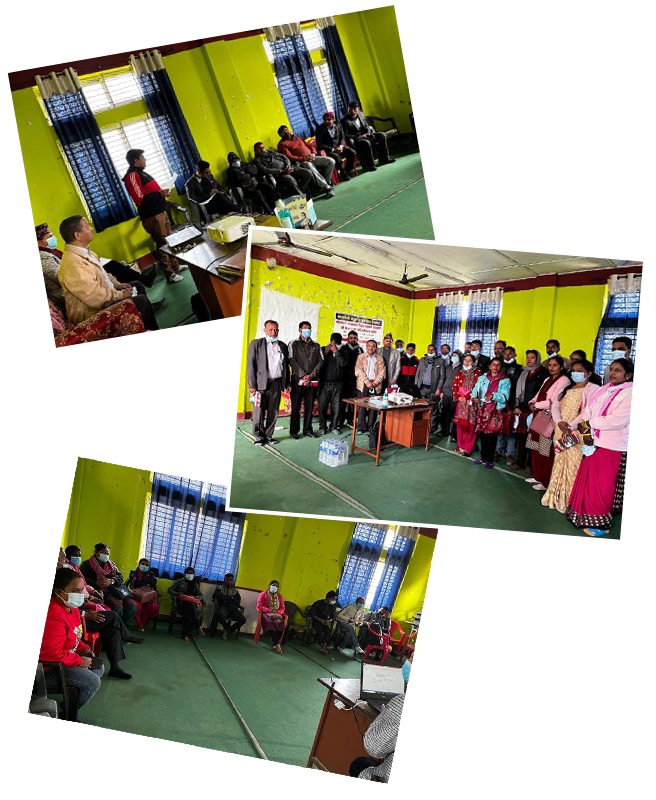
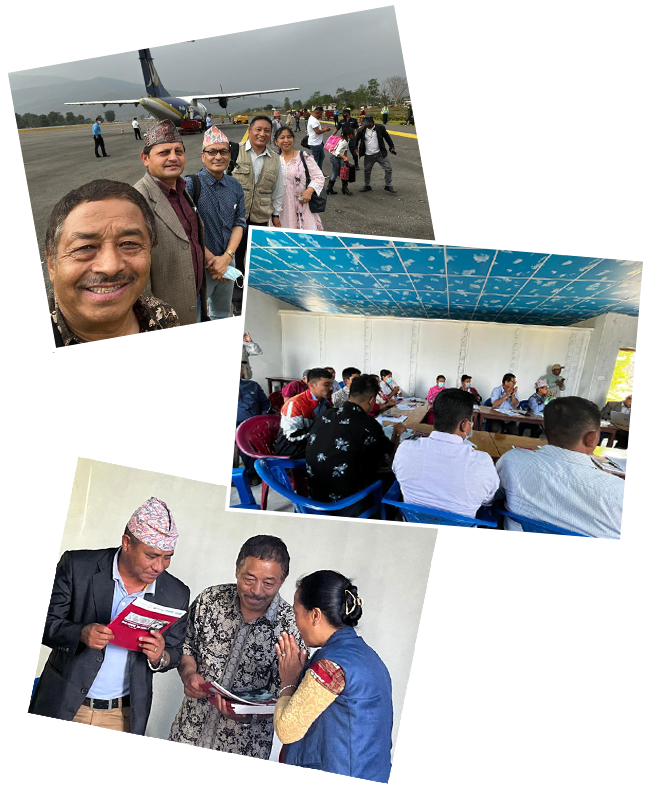
The toolkit is a package of supplementary resource materials for teachers and students; developed as per the school curriculum (class 4-12) from a team of stakeholders/ actors who has been involving in the sector for long time. It has also included reference materials produced by different organizations even if it is not directly linked to the curriculum.
The curriculum department believes that toolkits can be assets for students and teachers to better understand menstruation. The piloting phase was important for teachers to prepare excellent teaching materials related to menstruation and pedagogy for use in the classroom. As taboos, stigmas and beliefs are deeply rooted in Nepali society, this effort is not limited to schools only, but also with the teachers who work closely with people in the community, especially the parents. In the first phase, all the existing materials related to menstruation were brought together, the curriculum was analysed to find out the gaps between the available materials and the new materials required for the new curriculum were produced.
The toolkits will be tested in the field in different stages ; pre-piloting in schools in the valley and incorporate feedback before piloting in 30 schools in four districts in different geographical regions Solukhumbu (Himalaya region ), Khadbari ( Middle Hill ) and Kailali and Kapilvastu ( Terai Region)
The pre-piloting and Piloting phase will be focused on receiving teachers and students feedback over the materials and observing teachers delivery inside the classroom with using toolkits.
The piloting step will be very important to use these toolkits to make it more relevant and applicable in all schools of Nepal. The project envisages that with the pilot project will reach all 35,000 schools in Nepal through CHERD in coordination with local governments and isplayed in learning corner in schools and also will be uploaded on websites and made available online for wider audience.
